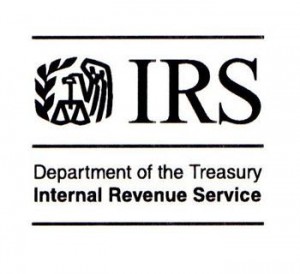 On October 22, 2015, the Department of Labor issued new guidance, Interpretive Bulletin 2015-01, relating to the fiduciary standards under ERISA in considering economically targeted investments (“ETIs”), or investments chosen to foster specific social goals, such as economic development and/or home ownership in a particular state or area. What does this guidance mean for fund fiduciaries?
On October 22, 2015, the Department of Labor issued new guidance, Interpretive Bulletin 2015-01, relating to the fiduciary standards under ERISA in considering economically targeted investments (“ETIs”), or investments chosen to foster specific social goals, such as economic development and/or home ownership in a particular state or area. What does this guidance mean for fund fiduciaries?
Category Archives: Employee Benefits
Economically Targeted Investments: Department of Labor Guidance Leaves Many Questions Open
Domestic Partnership Converted Retroactively to Marriage After Death Provides Basis for Spousal Benefits
(Posted on November 6, 2015 by Carol V. Calhoun)
 In a case that has obvious implications for employee benefit plans, the Veterans’ Administration (“VA”) has just provided survivor benefits to the partner of a service member, even though the partners were not married before the service member’s death.
In a case that has obvious implications for employee benefit plans, the Veterans’ Administration (“VA”) has just provided survivor benefits to the partner of a service member, even though the partners were not married before the service member’s death.
IRS determination letters after 2016; what are the options?
(Posted on July 28, 2015 by Carol V. Calhoun)
 As previously discussed, faced with substantial budget cuts, the Internal Revenue Service (“IRS”) has announced that it is eliminating most determination letters (letters concerning the qualified status of retirement plans, which gives rise to numerous tax benefits), effective December 31, 2016. (Announcement 2015-19.) In the past, individually designed retirement plans were able to obtain a determination letter once every five years, during a cycle provided by the IRS. The most likely new regime will involve making determination letters on individually designed plans available only when a plan is first adopted, or when it is terminated. Between those dates, the only way to ensure qualification other than filing a declaratory judgment action with the Tax Court is likely to be to adopt annual updates put out by the IRS that will include model wording for amendments.
As previously discussed, faced with substantial budget cuts, the Internal Revenue Service (“IRS”) has announced that it is eliminating most determination letters (letters concerning the qualified status of retirement plans, which gives rise to numerous tax benefits), effective December 31, 2016. (Announcement 2015-19.) In the past, individually designed retirement plans were able to obtain a determination letter once every five years, during a cycle provided by the IRS. The most likely new regime will involve making determination letters on individually designed plans available only when a plan is first adopted, or when it is terminated. Between those dates, the only way to ensure qualification other than filing a declaratory judgment action with the Tax Court is likely to be to adopt annual updates put out by the IRS that will include model wording for amendments.
For entities that maintain a retirement plan, the new regime may mean that they discover qualification issues only on audit, when it is too late to fix the issue. And the potential penalties on audit (for the employer, the trust under the plan, and the employees) are, as set forth in a prior article, huge. What steps should a plan administrator take to ensure the qualification of a plan after that point? Read more.
Governmental Plan Determination Letters: Last Chance?
(Posted on July 21, 2015 by Carol V. Calhoun)
 On July 21, 2015, the Internal Revenue Service (“IRS”) issued Announcement 2015-19, in which it announced that it would be making substantial changes to the determination letter program intended to allow retirement plan sponsors to ensure that their plans are qualified (eligible for tax benefits). This announcement will affect all retirement plans intended to be qualified, but will create particular issues for plans maintained by governmental employers (“governmental plans”). Read more.
On July 21, 2015, the Internal Revenue Service (“IRS”) issued Announcement 2015-19, in which it announced that it would be making substantial changes to the determination letter program intended to allow retirement plan sponsors to ensure that their plans are qualified (eligible for tax benefits). This announcement will affect all retirement plans intended to be qualified, but will create particular issues for plans maintained by governmental employers (“governmental plans”). Read more.
Employee benefits effects of Supreme Court same-sex marriage decision
(Posted on July 14, 2015 by Carol V. Calhoun)
 On June 26, 2015, the Supreme Court struck down all state bans on same-sex marriage in Obergefell v. Hodges. For employers, this decision raises the issue of what changes must be made in employee benefits to reflect the decision.
On June 26, 2015, the Supreme Court struck down all state bans on same-sex marriage in Obergefell v. Hodges. For employers, this decision raises the issue of what changes must be made in employee benefits to reflect the decision.
For this purpose, we will look at three categories of employers: those that have already been offering benefits to same-sex spouses, those that have not previously offered benefits to same-sex spouses, and those that have been offering benefits to domestic partners.
State Taxes for Married Same-Sex Couples
(Posted on June 26, 2015 by Carol V. Calhoun)
 In light of the Supreme Court decision in Obergefell v. Hodges, employers that maintain plans covering employees in same-sex marriages who live in any of the states that previously did not recognize same-sex marriage will have to adjust state tax withholding and reporting for such employees. State Taxes and Married Same-Sex Couples Before Obergefell provides a handy chart for determining which states are affected.
In light of the Supreme Court decision in Obergefell v. Hodges, employers that maintain plans covering employees in same-sex marriages who live in any of the states that previously did not recognize same-sex marriage will have to adjust state tax withholding and reporting for such employees. State Taxes and Married Same-Sex Couples Before Obergefell provides a handy chart for determining which states are affected.
State Taxes and Married Same-Sex Couples Before Obergefell
(Posted on June 26, 2015 by Carol V. Calhoun)
Update: On June 26, 2015, the Supreme Court held in Obergefell v. Hodges that all states must recognize same-sex marriages. This means that employers must adjust state tax reporting and withholding for all employees in same-sex marriages who live in states that did not previously recognize their marriages. The discussion below, written before the Obergefell v. Hodges decision, shows which states fall into that category. Read more.
Employee benefits effects of the Supreme Court decision on the Affordable Care Act
(Posted on June 25, 2015 by Carol V. Calhoun)
 In King v. Burwell, the Supreme Court today upheld a key provision of the Patient Protection and Affordable Care Act (“ACA”). What is the effect of this decision on employee benefit plans? Read more.
In King v. Burwell, the Supreme Court today upheld a key provision of the Patient Protection and Affordable Care Act (“ACA”). What is the effect of this decision on employee benefit plans? Read more.
EEOC: Discrimination based on sexual orientation or transgender status is prohibited sex discrimination
(Posted on May 12, 2015 by Carol V. Calhoun)
 Federal law contains provisions forbidding discrimination based on several classifications: race, sex, veteran status, etc. However, no federal law explicitly prohibits discrimination based on sexual orientation or transgender status. As a result, many employers in states which do not have their own legislation barring discrimination based on sexual orientation or transgender status have assumed that no laws prohibited such discrimination.
Federal law contains provisions forbidding discrimination based on several classifications: race, sex, veteran status, etc. However, no federal law explicitly prohibits discrimination based on sexual orientation or transgender status. As a result, many employers in states which do not have their own legislation barring discrimination based on sexual orientation or transgender status have assumed that no laws prohibited such discrimination.
The Equal Employment Opportunity Commission (“EEOC”) has now called this assumption into question, by bringing several lawsuits treating discrimination based on sexual orientation or transgender status as a form of sex discrimination prohibited by Title VII of the Civil Rights Act of 1964. This issue is a focus of the EEOC’s Strategic Enforcement Plan for 2013-2016. Read more.
Can a state retirement system deny benefits to felons? It’s complicated.
(Posted on May 12, 2015 by Carol V. Calhoun)
 Many state laws provide that an individual who commits a felony related to his or her official duties will forfeit benefits under the state retirement system. It is clear that such provisions in a pension plan are permissible if they were included in a pension plan on its adoption, or if they apply only to employees hired after the provision was adopted. However, two states (New York and California) have recently struggled with the issue of whether such a provision can be effective with respect to employees hired before the adoption of the provision. Read more.
Many state laws provide that an individual who commits a felony related to his or her official duties will forfeit benefits under the state retirement system. It is clear that such provisions in a pension plan are permissible if they were included in a pension plan on its adoption, or if they apply only to employees hired after the provision was adopted. However, two states (New York and California) have recently struggled with the issue of whether such a provision can be effective with respect to employees hired before the adoption of the provision. Read more.
